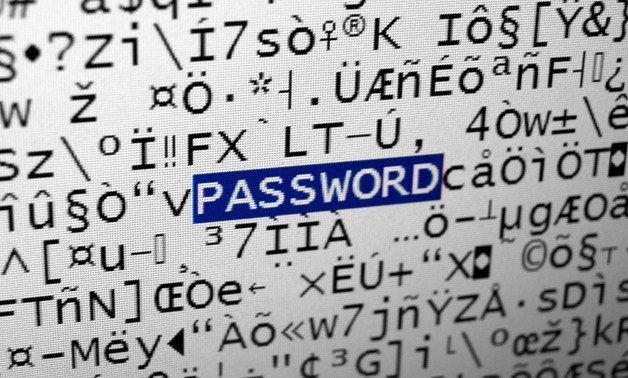
An anti-virus software and a strong password can improve your chances against hackers – Wikimedia Commons
CAIRO – 17 May 2017: “Simply, why would you blame a criminal for getting into your house when you are the one who forgot to close the doors in the first place?” IT expert Ahmed Moustafa told Egypt Today in an interview.
“One must fortify against hacking while taking into consideration that what we are dealing with here is an utterly serious matter,” Mustafa cautioned.
The internet, sadly, is not a safe world anymore; ideologies have started to grasp on the fact that cyberspace is not linked to reality, but reality is, cyberspace now can force itself through your real life.
A rapid upgrade in hacking programming and coding has led to an increase in cyber-attacks in the few last years.
However, that doesn’t mean you should not be taking rather practical precautions to keep your data and your life safe from bad guys!
We have got ten easy ways to deal with hackers:
1- Think of a hard-yet-memorizable password:
When it comes to choosing a password, you should be extra careful. Your password
should definitely not be four consecutive numbers, it
should not be your mobile number and it
should not be any date related to you.
A
proper password includes upper and lower case letters, numbers and even special characters. It should be at least eight characters; it is the main lock to your life.
Moreover, remember to change it regularly, but
do not write it down anywhere.
2- Keep as hardly away from free Wi-Fi:
Many public places now offer free wireless access to the internet. This place can simply be a playground for hackers; so unless it is
NECESSARY, it is best not to use it.
3- Beware of what you click!
A simple pop-up,
an unrequested browser window, especially one generated for the purpose of advertising, might be a portal into your personal data.
Maybe one of the most popular and successful ways hackers infect your computer through is something called
phishing, this means when you receive an e-mail attachment that looks real but it contains viruses or spywares that infects your computer or smartphone at once; so, beware what to download!
Beware, Pop-up webpages telling you that there are “critical errors” on your computer or “Your computer needs protection“ or “is running slow” are lies.
4- Be careful of what you plug into your computer:
A tiny flash drive can spread a MASSIVE amount of viruses across your files and data, so be
100 PERCENT sure it is clean, and from a trustworthy person. That makes us jump to the next recommendation, which is:
5- Use anti-virus and anti-malware softwares:
There is a variety of anti-viruses that are available for users, offering different kinds of computer and mobile phones security. Try searching for
, if you are not interested in buying something
extra for your own protection.
6- Do you really need to log into your internet accounts from a public place?
Before doing this you
need to know one fact; the more people use the computer, the more likely it has viruses and malwares infecting it.
7- Stay away from a suspicious link or email!
In addition to these precautions, you need your common sense to be active while your life is at the risk of a single click. If a link, ad or email looks suspicious,
DO NOT open it.
8- Do not give out your sensitive information unless proven legitimate!
Some website may ask you for sensitive information like your national ID or passport number, your credit card number, or even your phone number; just
DO a security check on the website asking for these information.
9- Shred all traces of your personal info on unwanted hardware
There is a variety of software that can easily do that for you, as it is easily doable for hackers to hack into this hardware and infiltrate your personal life. You can search for a program of this sort or you can just use one of the few simple-and-free, namely
.
10- Keep your sensitive data off cloud storage!
Despite of being an easy and almost guaranteed way to store your important documents online, it is by far the most dangerous. You should avoid putting your sensitive data, including private photos, text files that include your passwords, emails, bank account information and other personal information on cloud storage.

Comments
Leave a Comment